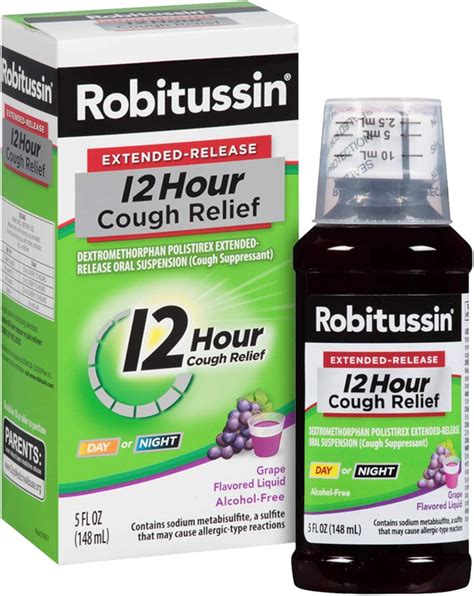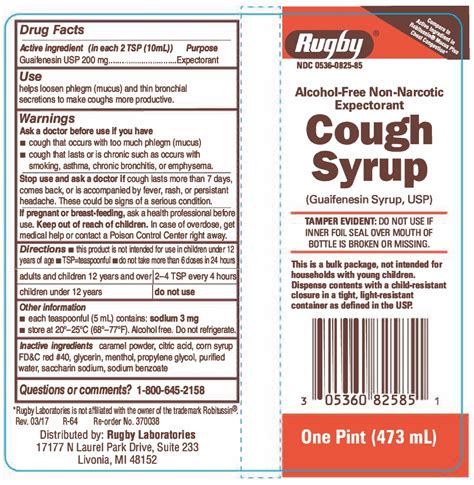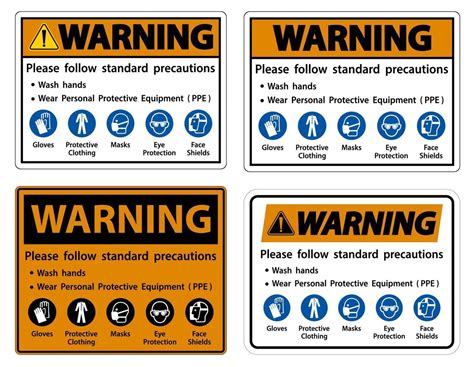Intro
Discover the best over counter cough medicine for effective relief from dry, wet, and persistent coughs, featuring top OTC cough suppressants and expectorants.
Coughing is a common symptom that can be caused by a variety of factors, including colds, flu, allergies, and bronchitis. When experiencing a cough, it can be frustrating and uncomfortable, disrupting daily activities and sleep. Fortunately, there are many over-the-counter (OTC) cough medicines available that can help alleviate symptoms and provide relief. In this article, we will explore the best OTC cough medicines, their ingredients, and how they work to help you make an informed decision.
The importance of choosing the right OTC cough medicine cannot be overstated. With so many options available, it can be overwhelming to decide which one to use. Some cough medicines may contain ingredients that are not suitable for certain individuals, such as those with high blood pressure or diabetes. Others may interact with prescription medications or have adverse side effects. By understanding the different types of OTC cough medicines and their active ingredients, you can make a more informed decision and find the best medicine for your specific needs.
Coughing is a natural reflex that helps to clear the airways of irritants, such as mucus, dust, and other foreign particles. However, when coughing becomes persistent and disruptive, it can be a sign of an underlying condition that requires medical attention. If you are experiencing a persistent cough, it is essential to consult with a healthcare professional to rule out any underlying conditions that may require medical treatment. In the meantime, OTC cough medicines can provide temporary relief and help to alleviate symptoms.
Types of Over-the-Counter Cough Medicines

There are several types of OTC cough medicines available, each with its own unique ingredients and mechanism of action. The most common types of OTC cough medicines include expectorants, cough suppressants, and combination products. Expectorants, such as guaifenesin, help to thin and loosen mucus, making it easier to cough up. Cough suppressants, such as dextromethorphan, help to reduce the frequency and severity of coughing. Combination products, such as those that contain both an expectorant and a cough suppressant, can provide relief from multiple symptoms.
Expectorants
Expectorants are a type of OTC cough medicine that helps to thin and loosen mucus, making it easier to cough up. Guaifenesin is a common expectorant ingredient that is found in many OTC cough medicines. It works by increasing the amount of water in the airways, which helps to thin and loosen mucus. This makes it easier to cough up, providing relief from congestion and coughing.Benefits of Over-the-Counter Cough Medicines

OTC cough medicines offer several benefits, including convenience, affordability, and accessibility. They are widely available at pharmacies, supermarkets, and online, making it easy to purchase and use them as needed. OTC cough medicines are also generally less expensive than prescription medications, making them a more affordable option for many individuals. Additionally, OTC cough medicines can provide quick relief from symptoms, making them a popular choice for those who want to alleviate their cough quickly.
Cough Suppressants
Cough suppressants are a type of OTC cough medicine that helps to reduce the frequency and severity of coughing. Dextromethorphan is a common cough suppressant ingredient that is found in many OTC cough medicines. It works by blocking the cough reflex in the brain, which helps to reduce the frequency and severity of coughing. This can provide relief from persistent and disruptive coughing, making it easier to sleep and perform daily activities.Top Over-the-Counter Cough Medicines

There are many OTC cough medicines available, each with its own unique ingredients and benefits. Some of the top OTC cough medicines include Robitussin, Mucinex, and NyQuil. Robitussin is a popular OTC cough medicine that contains the expectorant guaifenesin. It helps to thin and loosen mucus, making it easier to cough up. Mucinex is another popular OTC cough medicine that contains the expectorant guaifenesin. It also contains the cough suppressant dextromethorphan, making it a combination product that can provide relief from multiple symptoms. NyQuil is a nighttime OTC cough medicine that contains the cough suppressant dextromethorphan and the pain reliever acetaminophen. It helps to reduce the frequency and severity of coughing, while also relieving pain and reducing fever.
Combination Products
Combination products are a type of OTC cough medicine that contains multiple ingredients, such as an expectorant and a cough suppressant. These products can provide relief from multiple symptoms, making them a popular choice for those who want to alleviate their cough and congestion. Combination products can be more convenient than taking separate medications, as they often come in a single dose. However, they can also increase the risk of side effects, as they contain multiple ingredients.How to Choose the Best Over-the-Counter Cough Medicine

Choosing the best OTC cough medicine can be overwhelming, as there are many options available. To make an informed decision, it is essential to consider several factors, including the type of cough, the severity of symptoms, and any underlying medical conditions. It is also important to read and follow the label instructions carefully, as OTC cough medicines can interact with prescription medications or have adverse side effects.
Reading and Following Label Instructions
Reading and following label instructions is crucial when using OTC cough medicines. The label instructions provide important information about the medication, including the dosage, side effects, and interactions. It is essential to read and follow the label instructions carefully to ensure safe and effective use. This includes taking the recommended dose, avoiding interactions with other medications, and being aware of potential side effects.Common Side Effects of Over-the-Counter Cough Medicines

OTC cough medicines can cause side effects, although they are generally mild and temporary. Common side effects include drowsiness, dizziness, and stomach upset. In rare cases, OTC cough medicines can cause more serious side effects, such as allergic reactions or interactions with other medications. It is essential to be aware of these potential side effects and to seek medical attention if they occur.
Interactions with Other Medications
OTC cough medicines can interact with other medications, including prescription medications and other OTC products. These interactions can increase the risk of side effects or reduce the effectiveness of the medication. It is essential to be aware of these potential interactions and to consult with a healthcare professional before taking OTC cough medicines.Precautions and Warnings

OTC cough medicines can have precautions and warnings, particularly for certain individuals, such as pregnant women, breastfeeding mothers, and individuals with underlying medical conditions. It is essential to read and follow the label instructions carefully and to consult with a healthcare professional before taking OTC cough medicines.
Pregnant Women and Breastfeeding Mothers
Pregnant women and breastfeeding mothers should exercise caution when taking OTC cough medicines. Some ingredients, such as dextromethorphan, can pass into breast milk or affect the developing fetus. It is essential to consult with a healthcare professional before taking OTC cough medicines to ensure safe and effective use.Conclusion and Final Thoughts

In conclusion, OTC cough medicines can provide quick and effective relief from coughing and congestion. By understanding the different types of OTC cough medicines, their ingredients, and their benefits, individuals can make an informed decision and choose the best medicine for their specific needs. It is essential to read and follow the label instructions carefully, be aware of potential side effects, and consult with a healthcare professional before taking OTC cough medicines.
We hope this article has provided you with valuable information and insights into the world of OTC cough medicines. If you have any questions or comments, please do not hesitate to reach out to us. We would love to hear from you and help you in any way we can. Share this article with your friends and family, and help them make informed decisions about their health.
What is the best over-the-counter cough medicine for a dry cough?
+The best over-the-counter cough medicine for a dry cough is often a cough suppressant, such as dextromethorphan. This ingredient helps to reduce the frequency and severity of coughing, providing relief from a dry and irritating cough.
Can I take over-the-counter cough medicine with other medications?
+It is essential to consult with a healthcare professional before taking over-the-counter cough medicine with other medications. Some ingredients can interact with other medications, increasing the risk of side effects or reducing the effectiveness of the medication.
How long can I take over-the-counter cough medicine?
+The length of time you can take over-the-counter cough medicine depends on the specific product and your individual needs. It is essential to follow the label instructions carefully and consult with a healthcare professional if you have any questions or concerns.
